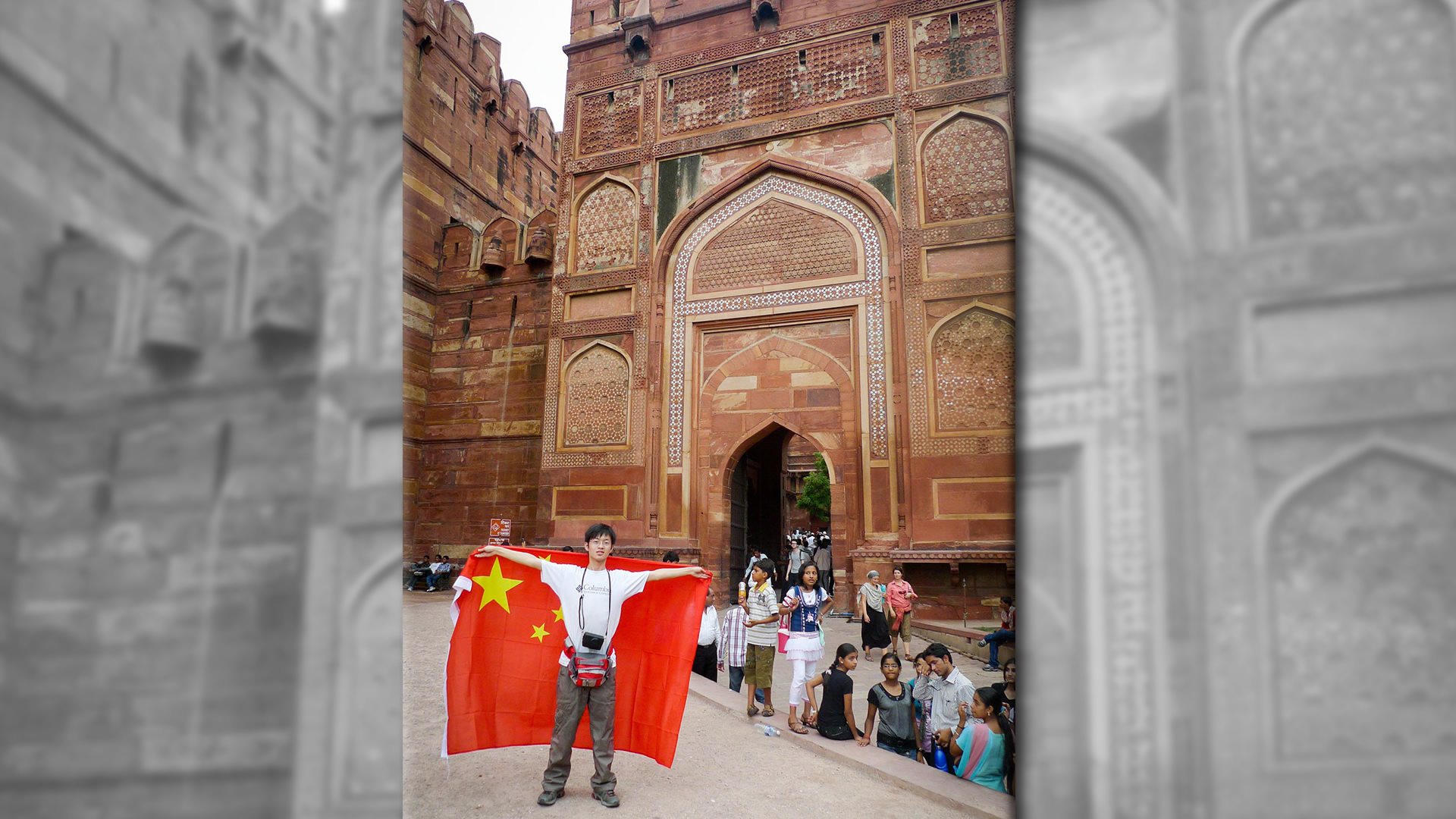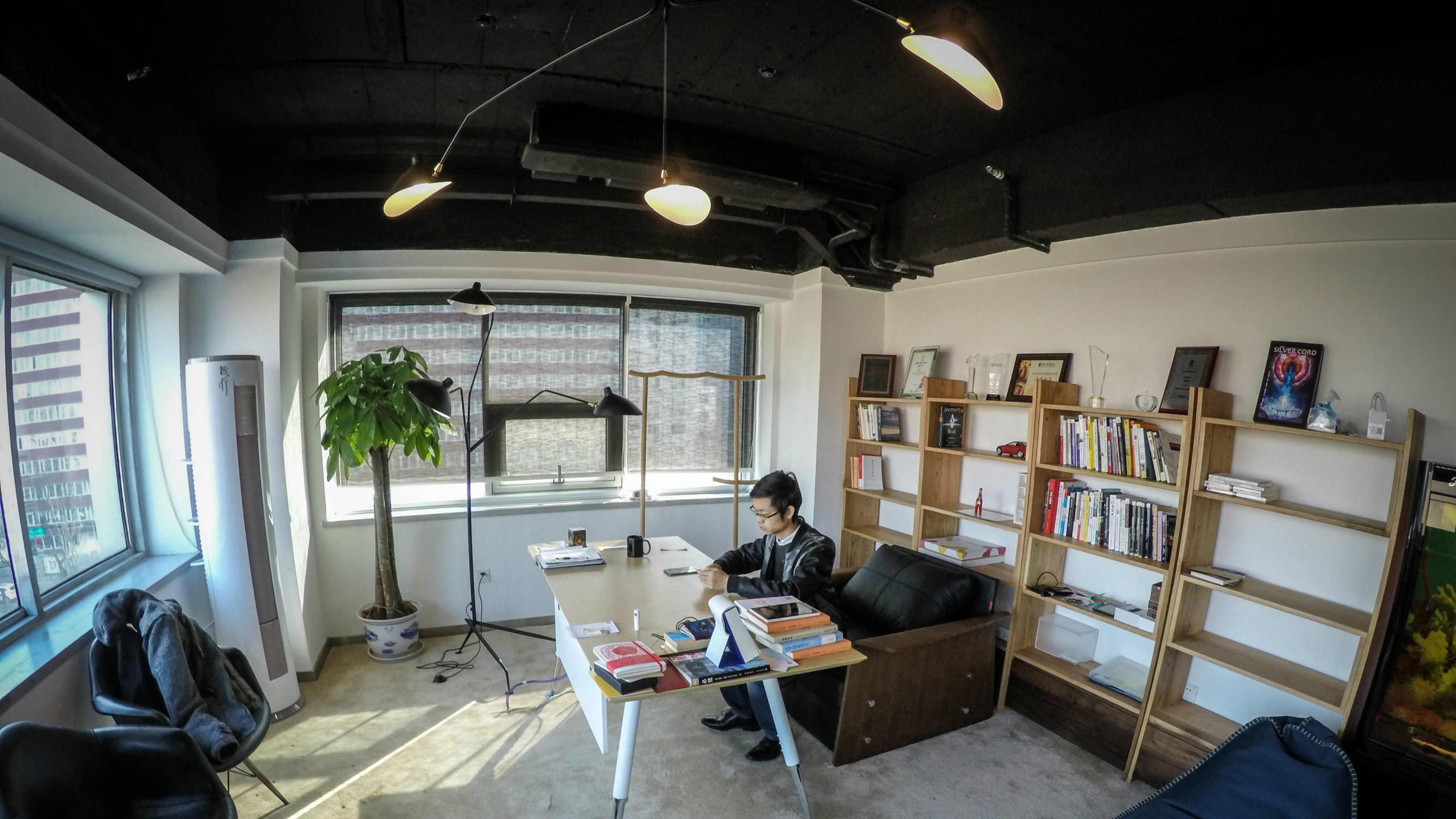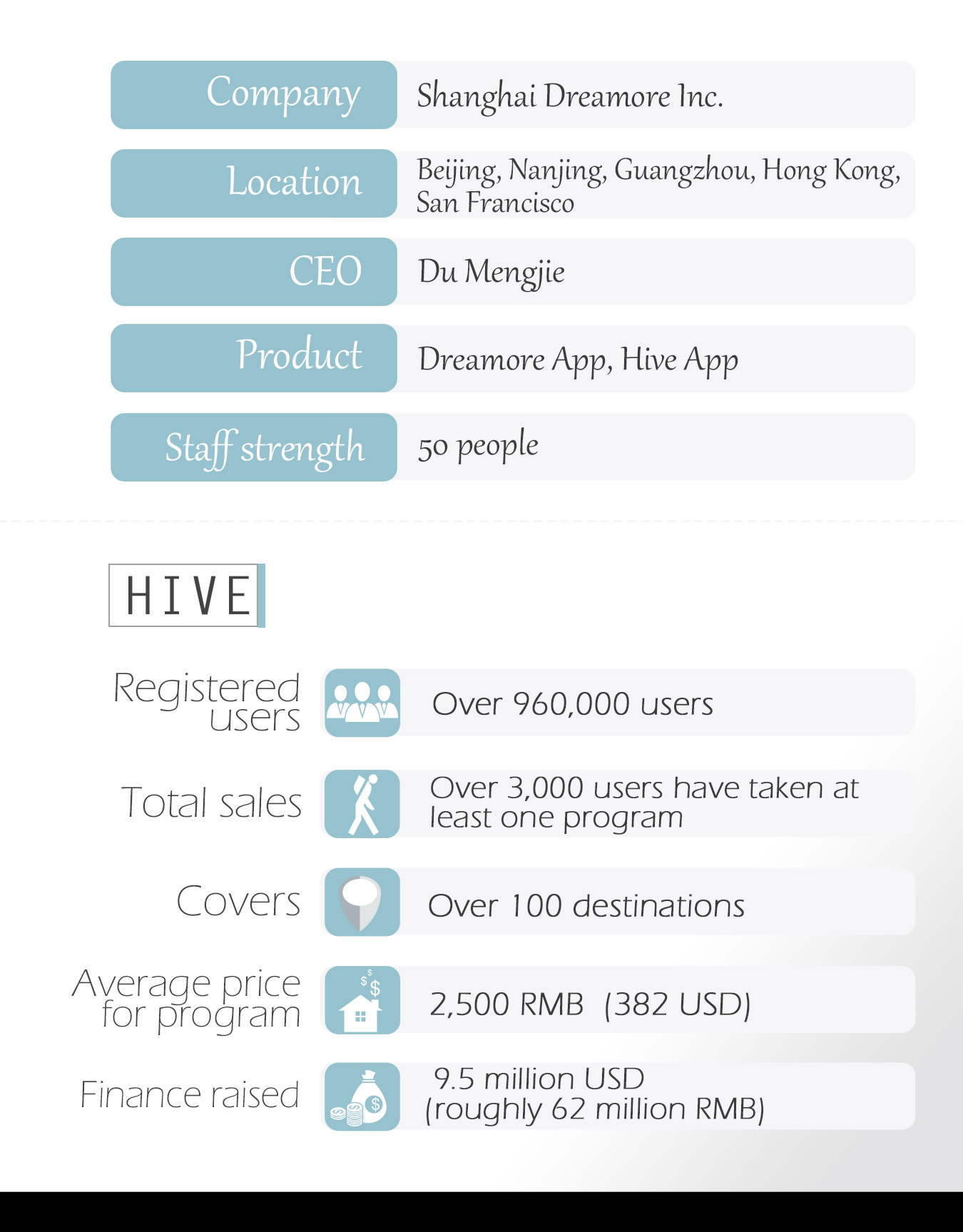
16:15, 03-Mar-2016
How the fear of being nobody drove this Chinese entrepreneur to success
Updated
10:29, 28-Jun-2018

“When I stood on the path of my journey, I didn’t know what to choose. Because I had been leading a life that was so monotonous that even I myself didn’t know what I liked exactly.”
- Du Mengjie, CEO of Shanghai Dreamore Inc.
From a traveler to an entrepreneur, Du Mengjie typifies the new Chinese businessman – someone for whom success lies in growth as much as it does in the pursuit of a passion.

Du’s story begins when he was in the third year of college. It was at that time that he decided to take a gap year and travel, despite strong opposition from his parents.
“I failed to persuade them, but I was a 20-year-old man,” Du recalls.
In order to raise money for the journey he had planned, Du decided to reach out to people online. He wrote a 20,000-word letter asking for support, and to his surprise, over 300 people backed him, allowing him to collect 60,000 yuan (9,168 USD).
With the funds taken care of, in 2010-2011, Du embarked on a journey through parts of China, India, Nepal, and the UAE, among other nations.
“When I was in India, I didn’t know what to say to my fellow travelers. People who were my age from abroad had rich experiences since their youth, but I had been studying. So compared with them, my life looked so pale. I felt very awkward and couldn’t help but think, why I was feeling like this.”

BRUSH WITH DEATH
The journey also took Du to war-torn Afghanistan, where he ended up working as an assistant at a logistics company. Unfortunately, in March 2011, the reality of what was happening in the country hit close to home for Du. A blast rocked a supermarket near his office, leaving the young man shaken.
“I was terribly scared and decided to fly back to China on the next day,” he recalls. “However, it was also at that time that I realized that being nobody is scarier than death.”
“I’m not an important person. I’m not Steve Jobs; I’m not even his son. When I die, the earth will still continue moving, with not many commemorating me given the limited contribution I had made during my life. Like the dust, like the wind, just disappear silently. Nothing changes. So I have to do something, at least one thing that brings value and impact to the world,” Du says, explaining his thought at that time.
A NEW BEGINNING

When he finally returned to China, Du decided to do something to address what he had been feeling. Taking a cue from what had helped him embark on his travels, he set up Shanghai Dreamore Inc., a crowd-funding platform, while he went back to college.
After two years of work, in late 2014, the company expanded with another platform — Hive. The platform was specifically targeted at people who sought adventure and travel, by offering them a chance to experience life as volunteers in over 100 destinations.

Input Words
Input Words

Input Words
Input Words

Input Words
Input Words
“When I was planning my tour, I had a terrible experience in getting through the complicated process - from targeting the proper place to apply, to contacting agencies and remitting money and so on. This is what drove me to develop Hive,” says Du.
Hive, he says, has partnered with universities and major companies in countries like the US, UK and Australia to provide its consumers a range of programs. For instance, they can travel to study, be volunteers, pursue training opportunities, participate in sports, engage in animal protection, or just visit and experience different cultures.
“When I receive messages from our users, they tell me how they experienced a totally different life and gained a deeper understanding of the outside world – this makes me feel extremely happy and excited, since I am doing something valuable, and helping young people in particular,” Du says.

So if he was to offer one piece of advice to other young entrepreneurs on pursuing their passion, what would it be?
“Follow your heart, but do solid work. Entrepreneurship is not a thing that you can wait and see. You should have long-term and strategic thinking, but be pragmatic and focus on implementing,” he says.

SITEMAP
Copyright © 2018 CGTN. Beijing ICP prepared NO.16065310-3
Copyright © 2018 CGTN. Beijing ICP prepared NO.16065310-3